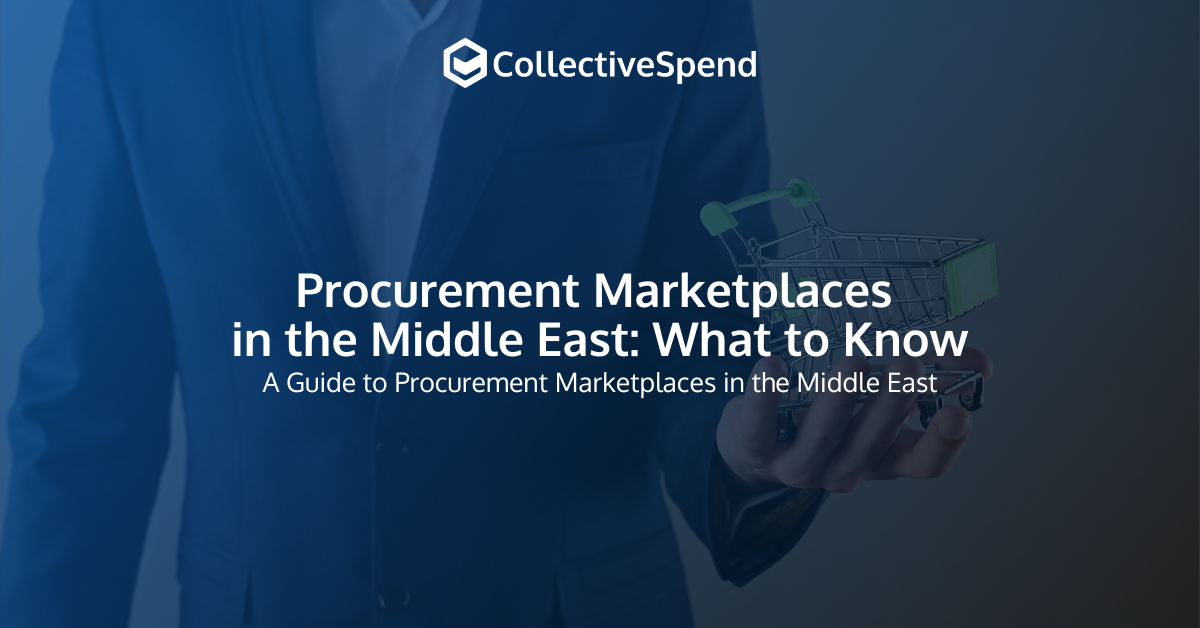The global market is witnessing a paradigm shift in business methods, moving towards digitalization and automated processes. The Middle East, particularly Saudi Arabia and the United Arab Emirates, is no exception. The region has seen a notable surge in procurement marketplaces for businesses that allow companies to streamline their operations and improve their purchasing efficiency.
In this article, we will delve deep into the world of procurement marketplaces, focusing on their significance for businesses in Saudi Arabia and the UAE.
I. The Rise of Procurement Marketplaces in the Middle East
The Middle East region has been quick to adopt digitalization thanks to government-supported initiatives, thus paving the way for marketplaces to thrive. The increasing adoption of smartphones and high-speed internet has resulted in a robust digital ecosystem, allowing businesses to explore new avenues for growth.
Marketplaces have also grown faster than other B2B digital sales channels in 2023, and experts say this will likely still be the case in 2024, according to a report by Digital Commerce 360. The study revealed a significant shift towards online marketplaces, with 59% of B2B buyers making a substantial portion of their purchases there.
In Saudi Arabia, successful local B2B platforms have emerged, connecting wholesalers and retailers through user-friendly mobile applications. Meanwhile, in the UAE, procurement digital platforms enable businesses to access a broad range of products and services by providing a seamless procurement experience.
II. Benefits of Procurement Marketplaces for Businesses in Saudi Arabia and the UAE
1. Time Savings and Improved Efficiency
Streamlining procurement processes by using digital platforms can save companies both time and resources. B2B marketplaces eliminate the need for manual processes such as sending out proposals or negotiating with suppliers individually, making procurement more efficient and reducing the risk of human error.
2. Cost Savings
Centrally managing procurement through digital marketplaces can lead to significant cost savings. As businesses gain access to a wider range of suppliers, competition increases, driving down prices and allowing companies to source products and services at more competitive rates.
3. Data Analysis and Informed Decision Making
Procurement platforms often come equipped with advanced reporting and analytics tools, allowing businesses to track their procurement performance in real time. This data helps companies better understand their spending habits, identify sourcing inefficiencies and make more informed decisions based on actionable insights.
4. Enhanced Supply Chain Management
The success of any business relies on efficient supply chain management. B2B marketplaces offer features such as supplier performance tracking, real-time inventory management, and consolidated invoicing, which help to optimize supply chain operations.
III. Challenges and Opportunities for Procurement in the Middle East
Despite the growing popularity of procurement marketplaces, businesses in the Middle East face several challenges in implementing this digital shift. Security concerns relating to data privacy and financial transactions are significant hurdles that companies must overcome to build trust and encourage widespread adoption.
However, opportunities abound for businesses willing to embrace digital procurement. By using blockchain technology to secure transactions on B2B platforms, companies can achieve greater transparency and trust in their procurement processes. Furthermore, as the region continues to diversify its economy, emerging industries like renewable energy, healthcare, and technology can benefit from streamlined procurement operations, fostering innovations in these sectors.
IV. Best Practices for Leveraging B2B Marketplaces in Saudi Arabia and the UAE
1. Set Clear Procurement Goals
Defining clear procurement objectives ensures every stakeholder stays aligned with the common purpose, increasing the likelihood of successful implementation and adoption of new procurement technologies.
2. Continuously Monitor Spending
To optimize procurement efficiency, continuously monitor your company’s spending trends and the efficiency of your suppliers. This will help you identify and troubleshoot any issues regarding your procurement processes.
Conclusion
In today’s highly competitive business landscape, companies in Saudi Arabia and the UAE must embrace innovative technologies and techniques to stay ahead of the curve. Procurement marketplaces offer unparalleled opportunities for businesses to streamline their purchasing processes, connect with potential suppliers, and enjoy increased efficiency and cost savings.
As the digital revolution continues to reshape the business landscape in the region, businesses need to remain proactive in adapting to new procurement technologies to ensure long-term sustainable growth. Reach out to CollectiveSpend today for procurement consultancy services to help your business find success.
You may also access the Tail Spend Marketplace (a private B2B marketplace) to ensure a safe and efficient procurement process. Your business can use the platform as a stand-alone or integrated with your ERP/Procurement systems.




